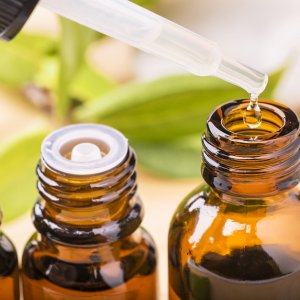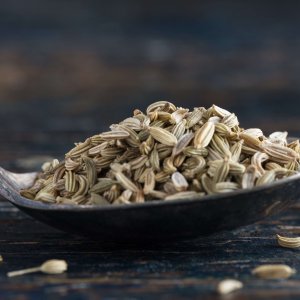What are the risks of using essential oils before surgery?
When it comes to essential oils and surgery, there are two major questions that must be addressed. First, does the essential oil increase the risk of bleeding. Second, does the essential oil interact with any new medicines such as antibiotics or pain medicines. Let’s talk through both of these. By the end of this article, you’ll be able to make an educated decision concerning essential oils and surgery.
Let’s first talk about the risk of bleeding.
There is no definitive list of essential oils that increase the risk of bleeding. There are some oils that have either an actual or a theoretical risk of thinning the blood. This may lead to an increased risk of bleeding around the time of surgery.
Likely of the most concerning essential oil when it comes to thinning blood before surgery is wintergreen. Wintergreen essential oil is comprised of more than 95% methyl salicylate. Methyl salicylate is absorbed across the surface of the skin and may increase the risk of bleeding. You may choose to use caution before the time of surgery. This is especially true if you are on any blood thinning medicines such as warfarin (Coumadin®), aspirin, and others. There is debate on whether synthetic oil of wintergreen and natural wintergreen carry the same risk of bleeding, but until there is more conclusive data, I think it is reasonable to limit exposure to wintergreen essential oil immediately before surgery.
What about after surgery?
Depending on the surgery you may be prescribed a blood thinning medicine. This is especially common after joint replacement, intra-abdominal surgeries, and for less invasive procedures such as cardiac catheterization (a ‘cath’). It is reasonable to limit exposure to essential oils that may have blood thinning properties in this situation as well.
But, where is the list of oils to avoid?
I do not make firm conclusions on which essential oils carry a risk of bleeding because, in my opinion, the data is not conclusive enough to make a definitive answer. However, there is some evidence to suggest that essential oils of anise, basil, birch, cassia, cinnamon bark, fennel, lavandin, marjoram, myrtle, oregano, patchouli, ravintsara, savory, thyme, wintergreen and others may confer a risk of bleeding.
So what should I do?
In my opinion, the choice to use essential oils around the time of surgery is simply a matter of monitoring. If you can adequately monitor for the signs and symptoms of bleeding and blood clots, then you may use them. However, if this is outside of the scope of what you would like to do, then perhaps essential oils and surgery are not for you. In this situation, you may simply choose to avoid essential oils for a few days before and after surgery.
How do I monitor for bleeding?
If you choose to use essential oils while on blood thinners, it is important that you are aware of the signs of bleeding so you can identify early when a potential drug-essential oil interaction occurs. If you experience nosebleeds, blood in the sink after brushing or flossing teeth, bruises that are larger than normal or do not heal in a time frame that is normal for you, vomiting blood or a substance that looks like coffee grounds, blood in the stools or black-tarry stools, contact the person who monitors your anticoagulation.
What about drug interactions?
Drug interactions occur when one medicine or substance changes the activity of another when administered together. Many drug interactions occur in the liver, but may occur in almost any body system, in the blood, and on the surface of cells. This is why you must be cautious in choosing which essential oils to use while on medication pre- and post- surgery.
The list of essential oils that interact with liver enzymes are too numerous to name . Some of the most commonly named essential oils are wild mountain sage, brown and yellow camphor, lemongrass, blue chamomile, blue tansy, and yarrow. These have been show in vitro to interact with select liver enzyme. Some suggest caution with these essential oils even when applied topically, as they may cause drug interactions.
So what do I do about the new medicines I am taking?
Since there are so many medicines and so many essential oils, summing up best practices is exceedingly hard to do. Discuss with your pharmacist what the medicine is, how long you will take it, and what the side effects are.
Some medicine side effects will pass when you stop taking the medicine (constipation with pain killers, for example). Others are serious (bleeding and blood thinners, for example). Report these to a health care provider quickly. Ask your pharmacist which side effects will heal themselves with time, and which ones to report. If you use an essential oil and notice a new side effect arise, perhaps back off on the essential oil.
Discuss with your health care professional which medicines are taken regularly and which are as needed. Likely, it is very important that you adhere to your blood thinner medicines rather than essential oils after surgery to prevent potentially life threatening blood clots. Pain medicines, on the other hand, are only taken as needed. Limit your use of medicines as instructed by your health care provider, and you limit the risk of potential interactions with essential oils.
Bottom Line
In the end, when it comes to essential oils and surgery, it is important to discuss how high your risk of bleeding is with your physician and to be sure to monitor for signs of bleeding. Also talk with your pharmacist about the side effects of your medicines and be quick to report any potential side effects to your health care provider.
For more on essential oils and blood thinning medicines, check out this Blog Post!









